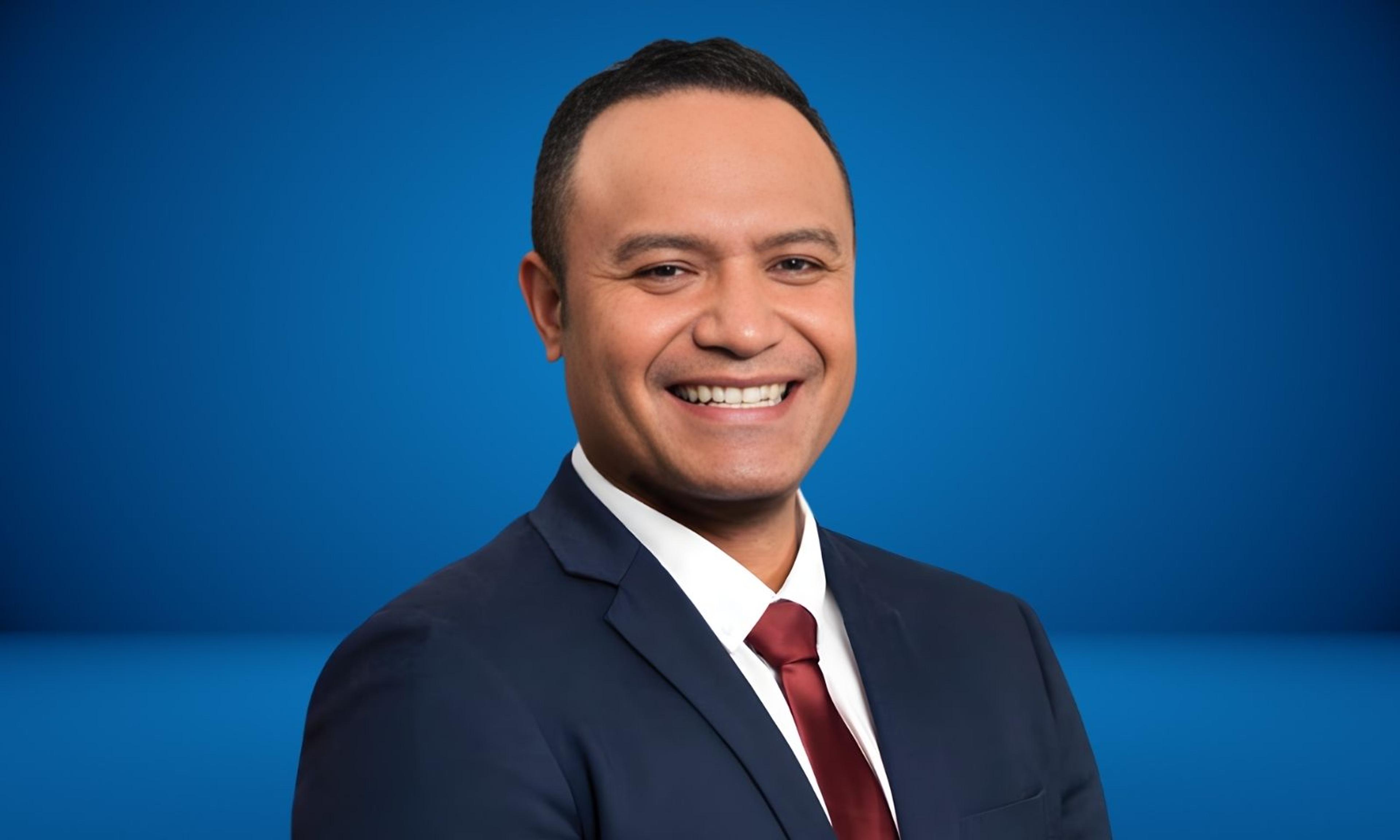

From left, French ambassador to the Pacific, Veronique Roger-Lacan, New Caledonia's pro-independence President Louis Mapou, and French President Emmanuel Macron.
Photo/supplied
Kanaky Aotearoa urges France to reconsider stance on New Caledonia
With no end in sight to the political turmoil in the French territory, there have been statements, counter statements, denials, and affirmations from both sides of the conflict.

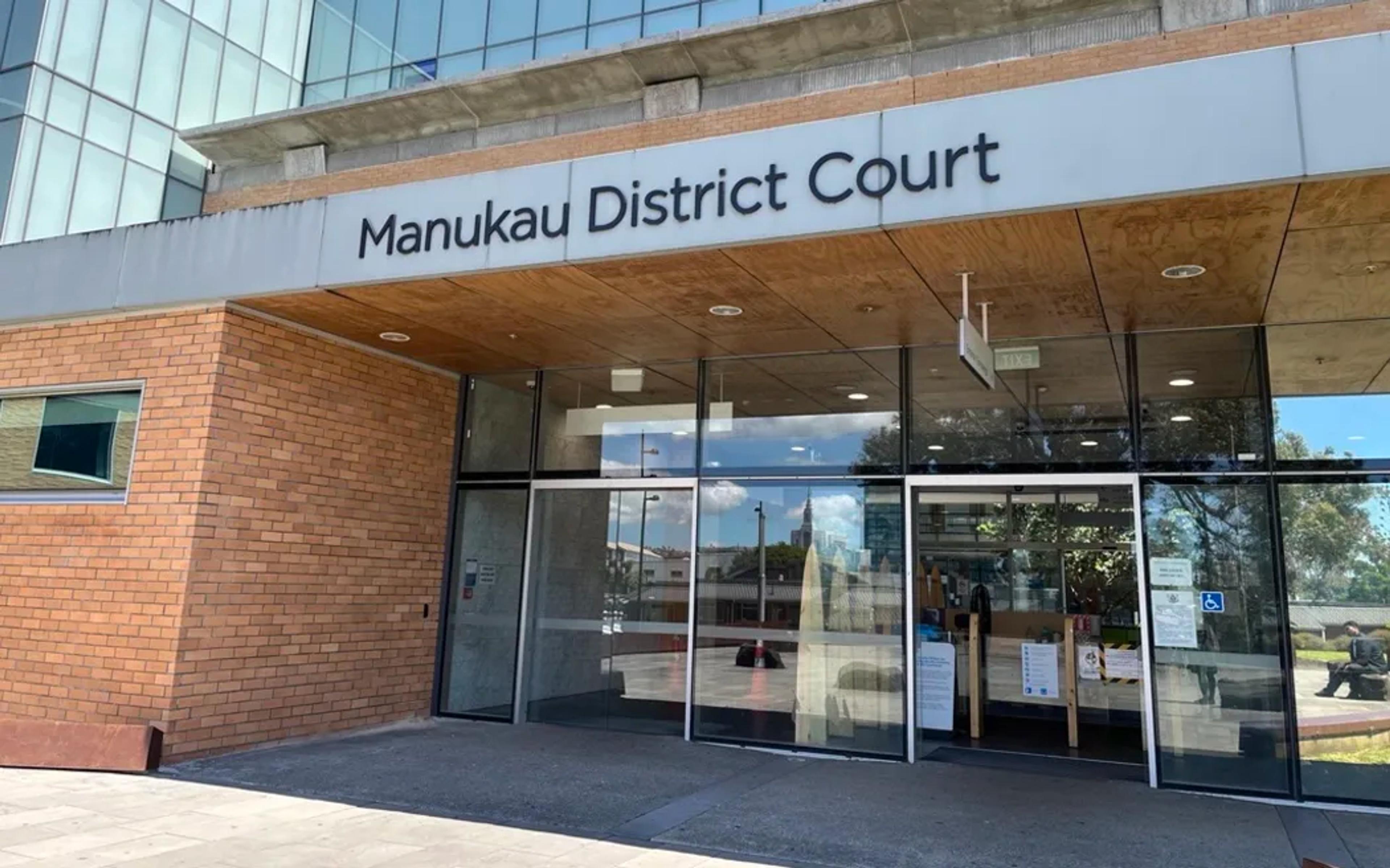
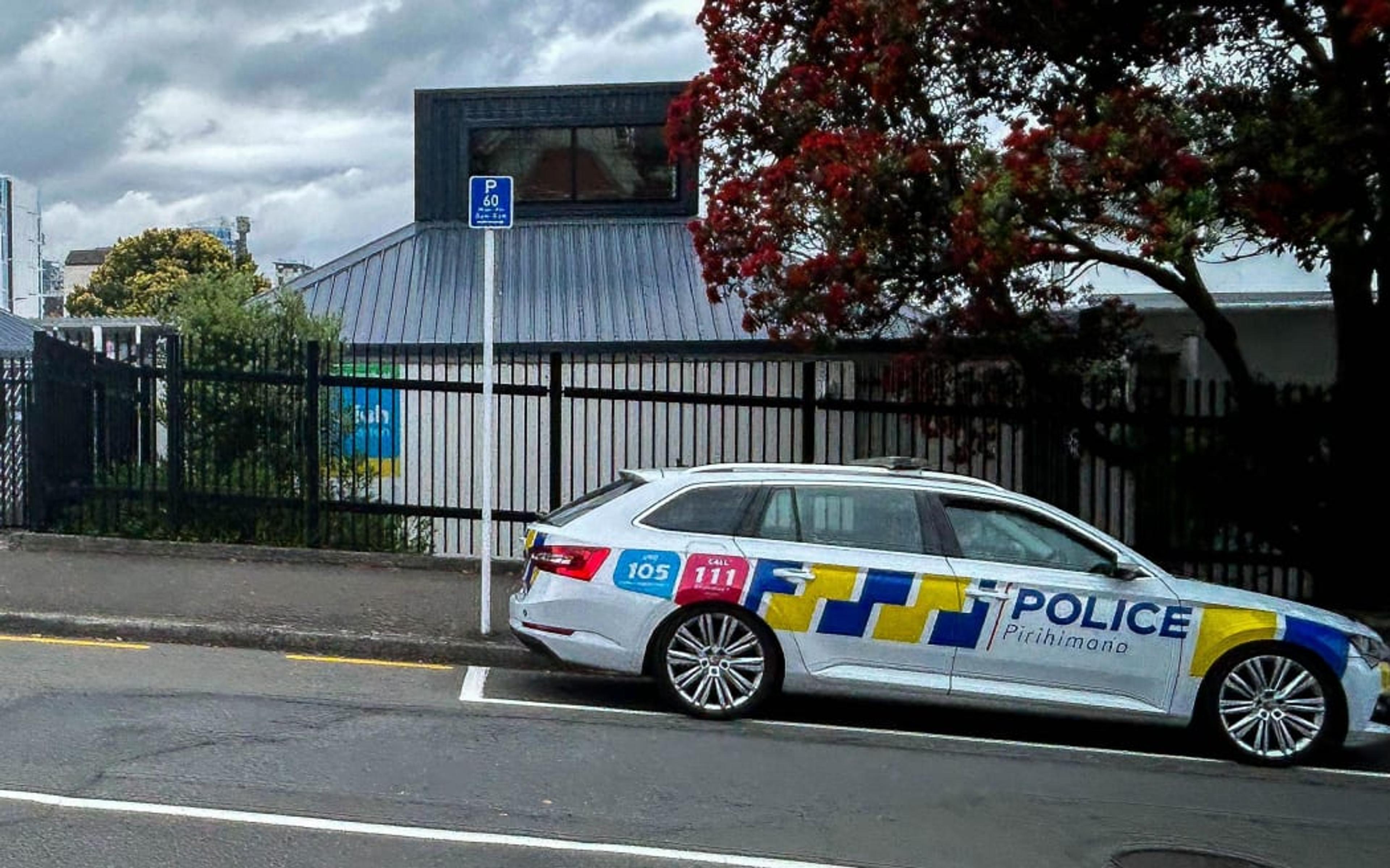
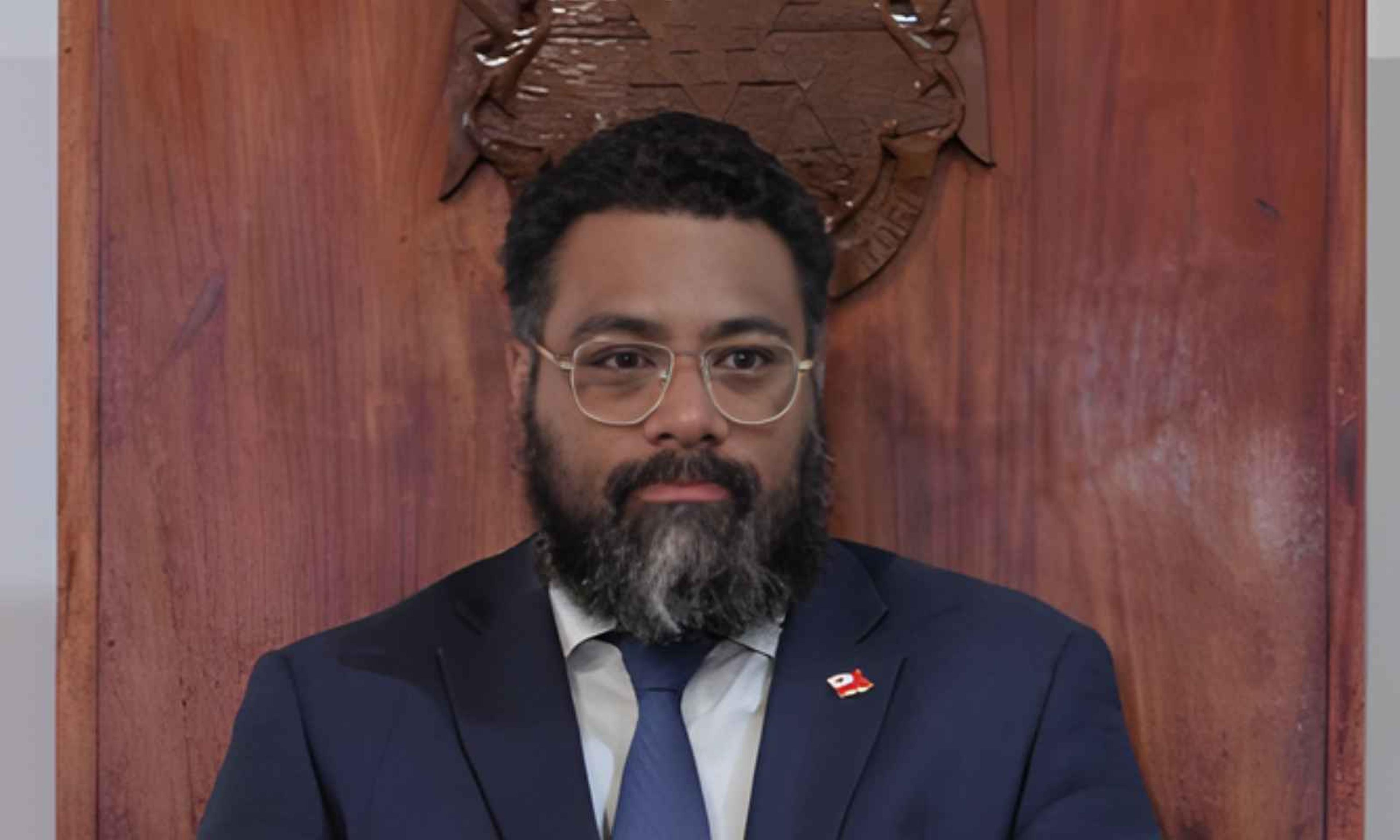
Tonga’s new PM sparks wide debate amid praise and concern

Pacific health leaders warn cancer surge looms: ‘Early action cannot afford to wait’



Tonga’s new PM sparks wide debate amid praise and concern
Three months after a wave of civil unrest rocked New Caledonia, a familiar uneasy calm has returned to the French Pacific territory.
Critics of France's President Emmanuel Macron say the sense of certainty and stability in Noumēa has been shattered for many residents in the capital.
The Kanaky Aotearoa group says this is because Macron refuses to agree to independence for the indigenous Kanaks, who comprise 40 per cent of the population, and were promised self-rule in the Noumēa Accord.
The group's spokesperson, David Small, told Pacific Mornings' William Terite, "It's just mischief making" by Macron's government that has escalated tensions between both sides of the conflict.
Small said claims by France's top diplomat in the Pacific, Veronique Roger-Lacan, that the delayed Pacific Islands Forum-led mission to Noumēa was caused by a lack of consensus among PIF members, were uncalled for.
Watch David Small's full interview below.
"It was pretty clear that the PIF wanted a delegation to go over there before the forum leaders' meeting in Tonga so they could report back to the PIF.
"Everybody was in agreement and then France stepped in and insisted that they were going to be the organiser of the visit and then the representatives of the government in New Caledonia, Louis Mapou and Roch Wamytan, said well hang on, we are the representatives of New Caledonia at the forum, we are hosting this group. They come if we host them not some stage-managed thing by the French government.
"That's why the delegation never happened because France effectively elbowed their way in and the independence movement and elected officials in New Caledonia weren't keen to go ahead on those basis."
New Zealand has also criticised Roger-Lacan with Deputy Prime Minister Vaovasamanaia Winston Peters saying her comments were "not helpful".
Small agreed Paris was "telling untruths" over this and "trying to play the Pacific for fools".
"It does feel like that. Winston is always very careful to say that we welcome French participation in the Pacific and that's a good thing to say. But if they're going to participate in the Pacific, they need to behave properly.
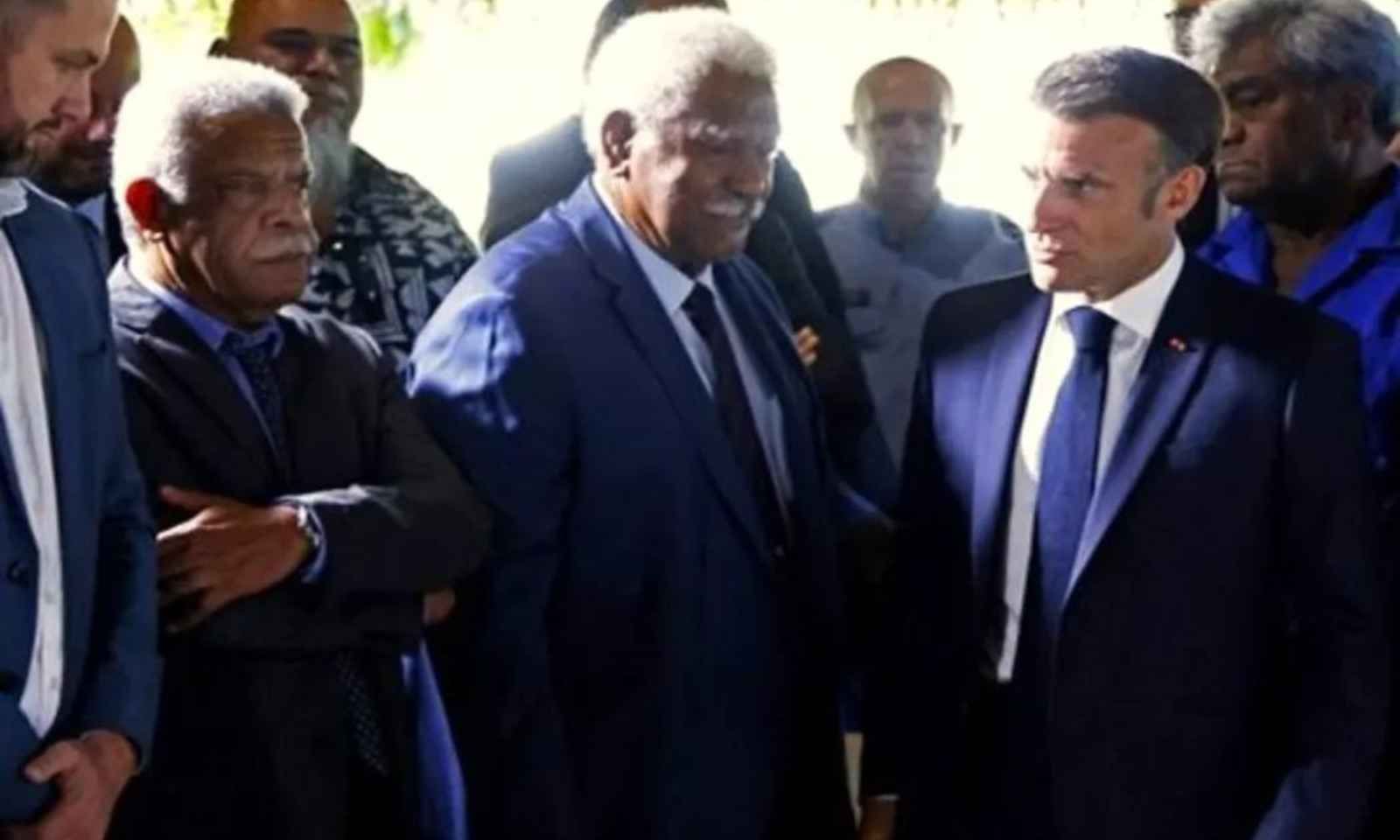
French President Emmanuel Macron, right, in Noumēa in May. At left is New Caledonia's pro-independence President Louis Mapou. Photo/file
"And this woman, Madame Roger-Lacan, who is she anyway? She's the ambassador to the Pacific. Different countries have French ambassadors, she's the ambassador to the Pacific.
"Who does she represent? There's been an election in France where the government she represents came last. So, she's sort of the lame-duck-leftover representative of the party that lost.
"I'm really pleased he [Peters] wouldn't talk to her. She's kind of a nobody now and she's got a lot to say for somebody who's kind of a nobody."
Pro-independence leaders say peace will only be possible when their grievances are addressed. They add that France's "colonial strategy" is to blame for the division in Noumēa.
In 1998, following conflict between pro-independence activists and French forces in the 1980s, political leaders agreed to the Noumēa Accord, which provided for three referendums on independence and a restricted local electoral roll, which included Kanaks and only long-term immigrants.
In the first and second referendums in 2018 and 2020, 43.33 per cent and 46.74 per cent of voters backed independence. However, Kanaks boycotted the last vote in 2021, due to the pandemic, and the vote to remain part of France swung to 96.5 per cent.
Small said it was good to see France admit that it could not pursue this latest referendum to grant new arrivals voting rights in New Caledonia.
"They couldn't sustain the view that the issue for independence was over and New Caledonia would not be independent. They couldn't say there's no more dialogue, that's all been decided.
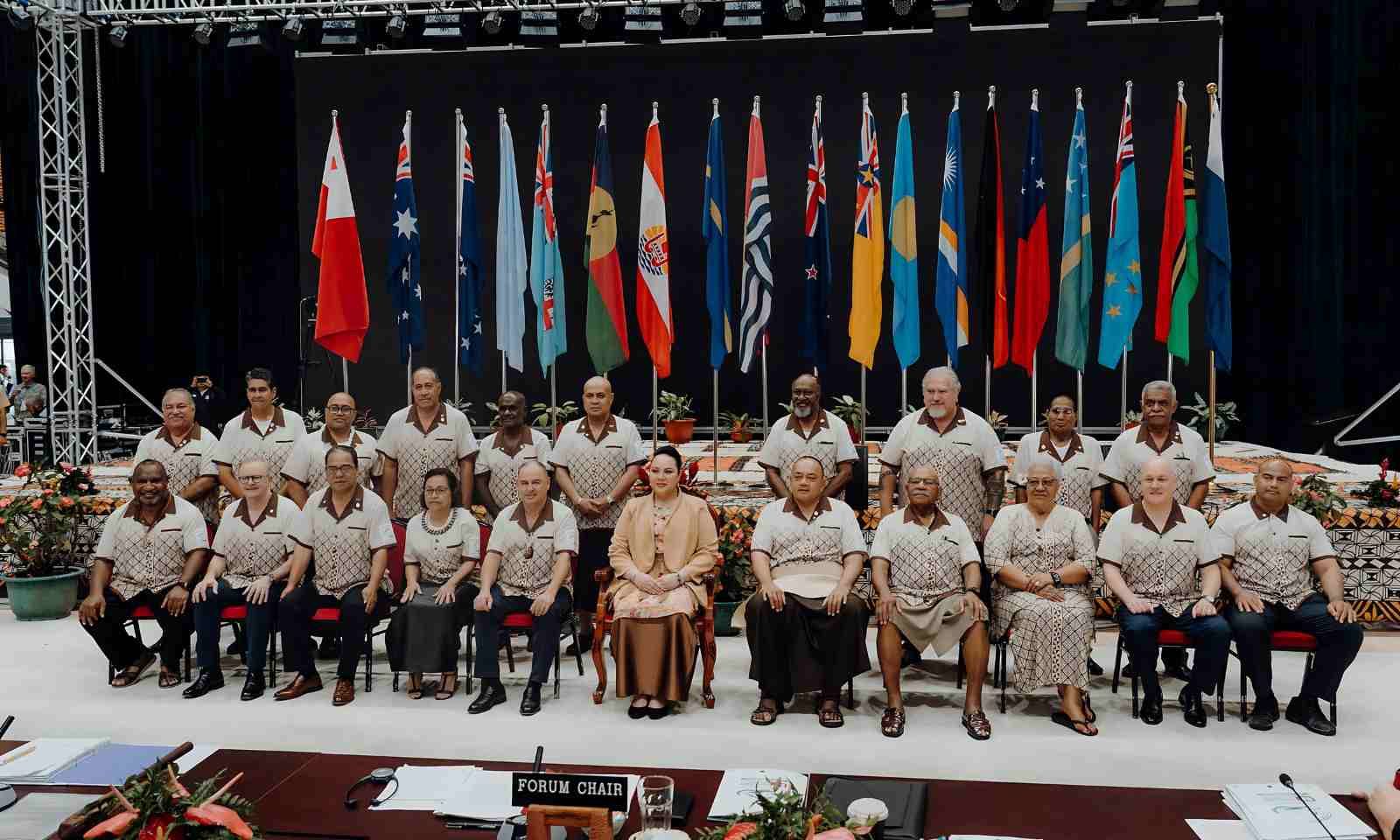
Pacific Islands Forum leaders with Tongan Princess Angelika Lātūfuipeka Tuku'aho. Photo/Joseph Safiti
"But what's happened since then, of course, is that for reasons related to the rise of the far right in France, there's been an election in France, and the biggest party has been the left.
"So it's been kind of a wait-and-see what happens in France. Macron said let's just leave things how they are until the Olympics. The Olympics are over. And he is still reluctant to do what he should do, which is give the opportunity for the biggest party from the election, the left, to form a government.
"They proposed a woman as the prime minister, and that's what should happen. And he says it wouldn't be, in his opinion, in the interests of France for the left to be leading a government.
"So as long as that happens, there's this situation of who the parties in New Caledonia talk to."
Small said one thing was clear: there is a growing number of people who favour independence in New Caledonia.
He said in that election, the pro-independence parties got more votes than the anti-independence parties. So it's pretty clear which way things are going.
"One of the things that France has not done is it has not confronted the anti-independence people in New Caledonia with the prospect that they might have to come to terms with New Caledonia being independent.
"And that is what absolutely needs to happen. New Caledonia needs to be assured by France that if and when the country becomes independent, they will stand by it and they will continue to support it."
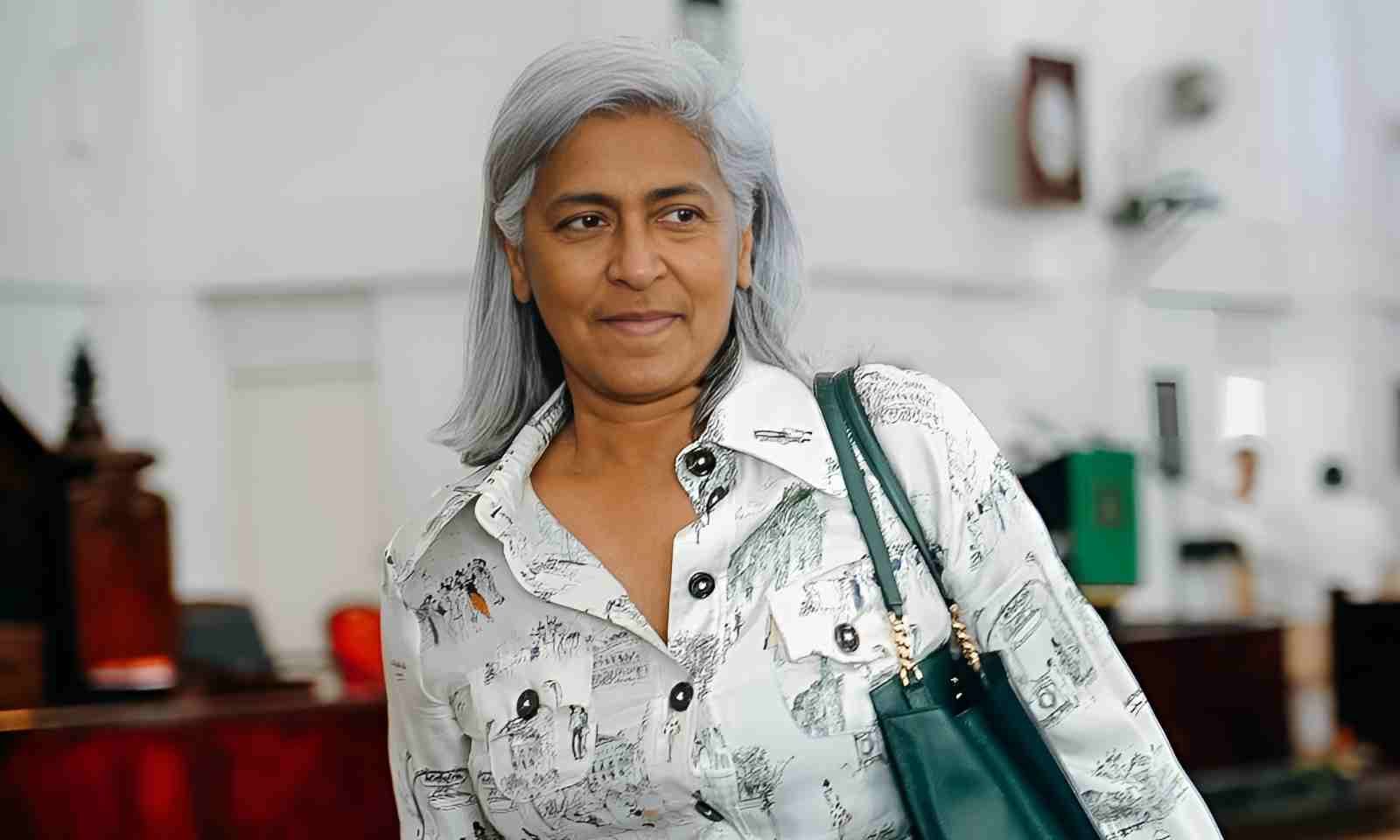
French ambassador to the Pacific Veronique Roger-Lacan. Photo/Joseph Safiti